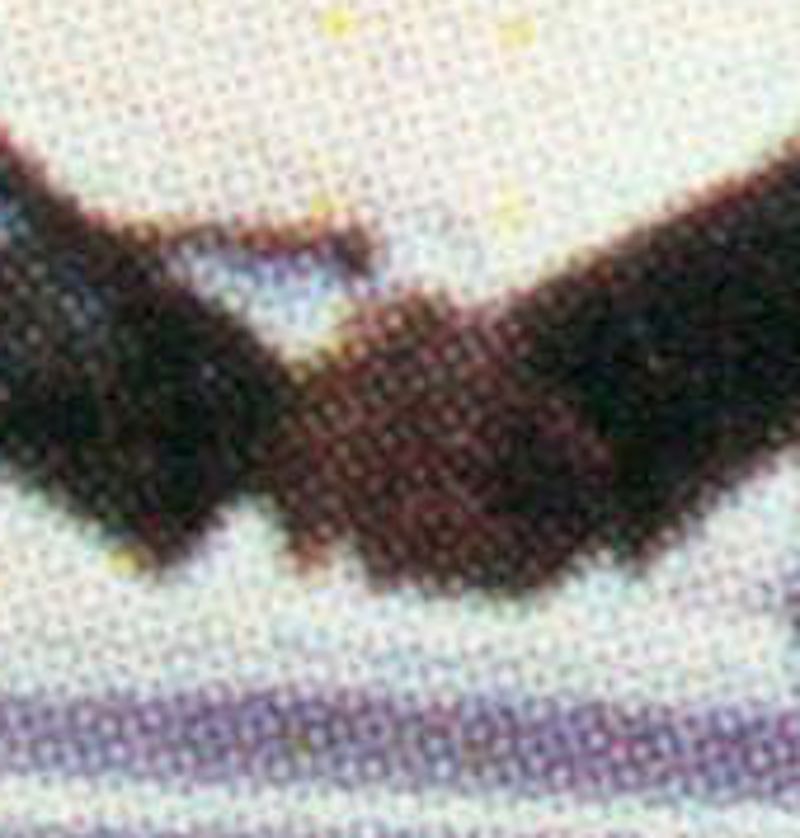I hope handshaking goes away, either entirely or nearly so, permanently. It’s a needless germ-spreader and awkward social custom that as a routine greeting has evolved beyond its long-ago supposed utility of showing one’s not carrying a weapon. Let it be reserved for the main participants at certain formal or special occasions, such as the signing of a treaty.
I hope commuting becomes a significantly less pervasive part of life going forward. Certainly, many jobs have to be done on-site, and face-to-face contact has value even when optional; having worked at home for the majority of my career, I’m aware of its downsides and upsides. Still, we’d be a less harried, less polluting society, and one more capable of withstanding disasters, if more employers enabled part-time or full-time teleworking.
I hope universal basic income is implemented on an ongoing basis. Though I looked favorably upon Andrew Yang’s presidential campaign, I wasn’t fully convinced about UBI, having doubts that automation would create the job losses he predicted. The pandemic, however, has underscored the value of UBI as a means of enhancing households’ economic resilience (and so, indirectly, aiding businesses and the economy overall). Cory Booker’s idea of baby bonds also merits attention as a way of helping families weather disruptions to their livelihoods.
I hope knee-jerk skepticism toward journalism will diminish. There’s plenty of bias, sensationalism and inaccuracy in journalism, but a measured approach of analyzing sources and content serves consumers better than a broad dismissal of professional reporting. Such dismissiveness is particularly prevalent in conservative circles, but it isn’t limited to them. As the pandemic emerged, many people underestimated it based on a distrust of media hype. But journalists, too, are capable of “normalcy bias,” an assumption that past patterns will hold.
I hope there will be a commission, as some lawmakers and pundits are already calling for, modeled after the ones formed after 9/11 and the financial crisis, that will review the nation’s response to the pandemic. Furthermore, I hope this body will also examine the origins of the pandemic and how it was initially handled by authorities in China.
I hope election security will rise to the top of the political agenda in the United States. We need to keep our democracy functioning regardless of foreign interference, natural disasters or attempts by our own elected officials to evade their electoral accountability.
I hope a stepped-up cultural affinity for science will emerge. This is particularly likely to occur if research efforts now underway result in vaccines or antiviral therapies that save countless lives. In any case, though, the sudden emergence of a novel virus bringing catastrophic worldwide effects should be a wake-up call that we need a better understanding not only of infectious agents but of biology and nature more broadly.
I hope some degree of enhanced appreciation for various occupations crucial in a crisis—including health care workers, truckers, supermarket employees and many others—will endure even after the pandemic has ended. I hope technology entrepreneurs will stop emphasizing how they can “disrupt” something or another, and instead put an increased focus on products that may help prevent or withstand natural or human-caused disasters.
I hope we don’t overlearn lessons of the pandemic. That may be the hardest of all. Past crises and disasters often created precedents in policy or psychology that proved ill-suited for future events. This was evident in the early stages of the pandemic, with insouciance by American officials and the public drawing on inapplicable lessons taken from 9/11 and the financial crisis. Fighting the pandemic has involved stepped-up surveillance and limits on freedom of movement. Warranted to some degree now, such measures might be wrongly applied in a future crisis; in fact, they might be a future crisis.
—Kenneth Silber is author of In DeWitt’s Footsteps: Seeing History on the Erie Canal and is on Twitter: @kennethsilber

